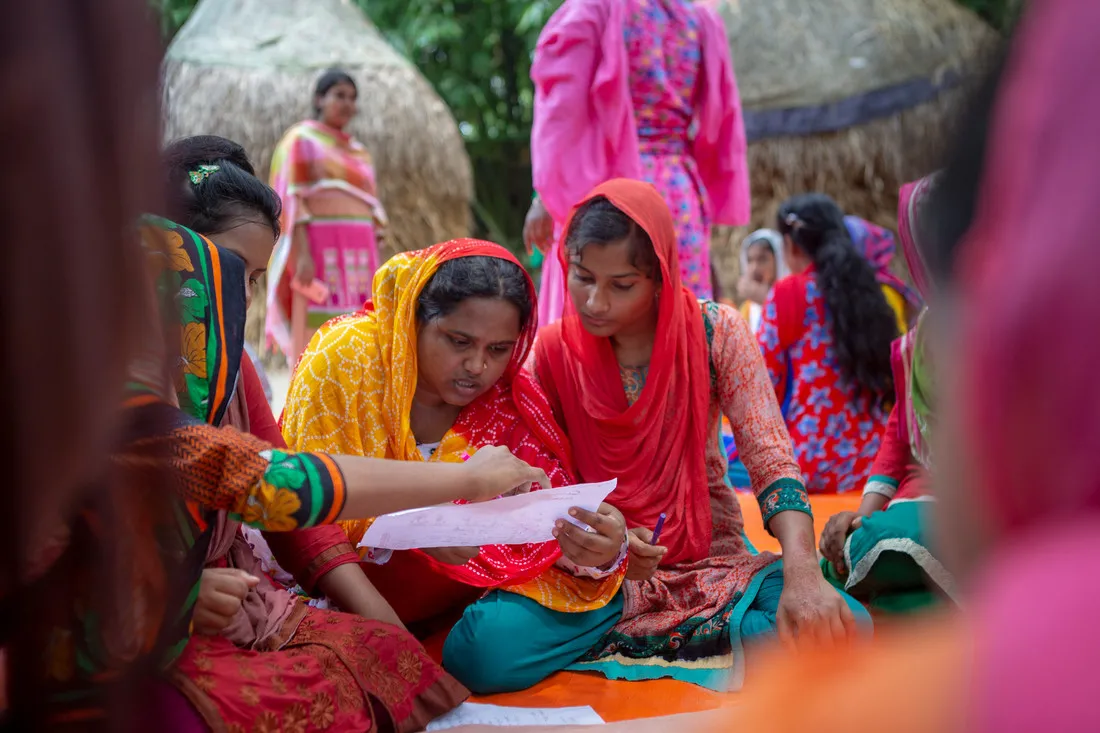CARE is continually building evidence of what works to address the root causes of inequality. But we don’t want to just talk about the needs of women, girls, and their communities — we want to work with them at every step of the way.
Our approach to this – what we term “Gender Equitable MEAL” – is about shifting power to communities and participants so they determine what change, progress, and impact mean to them. This centers the voices of those we work with in all their diversity to help ensure our programming responds to their needs and perspectives.

